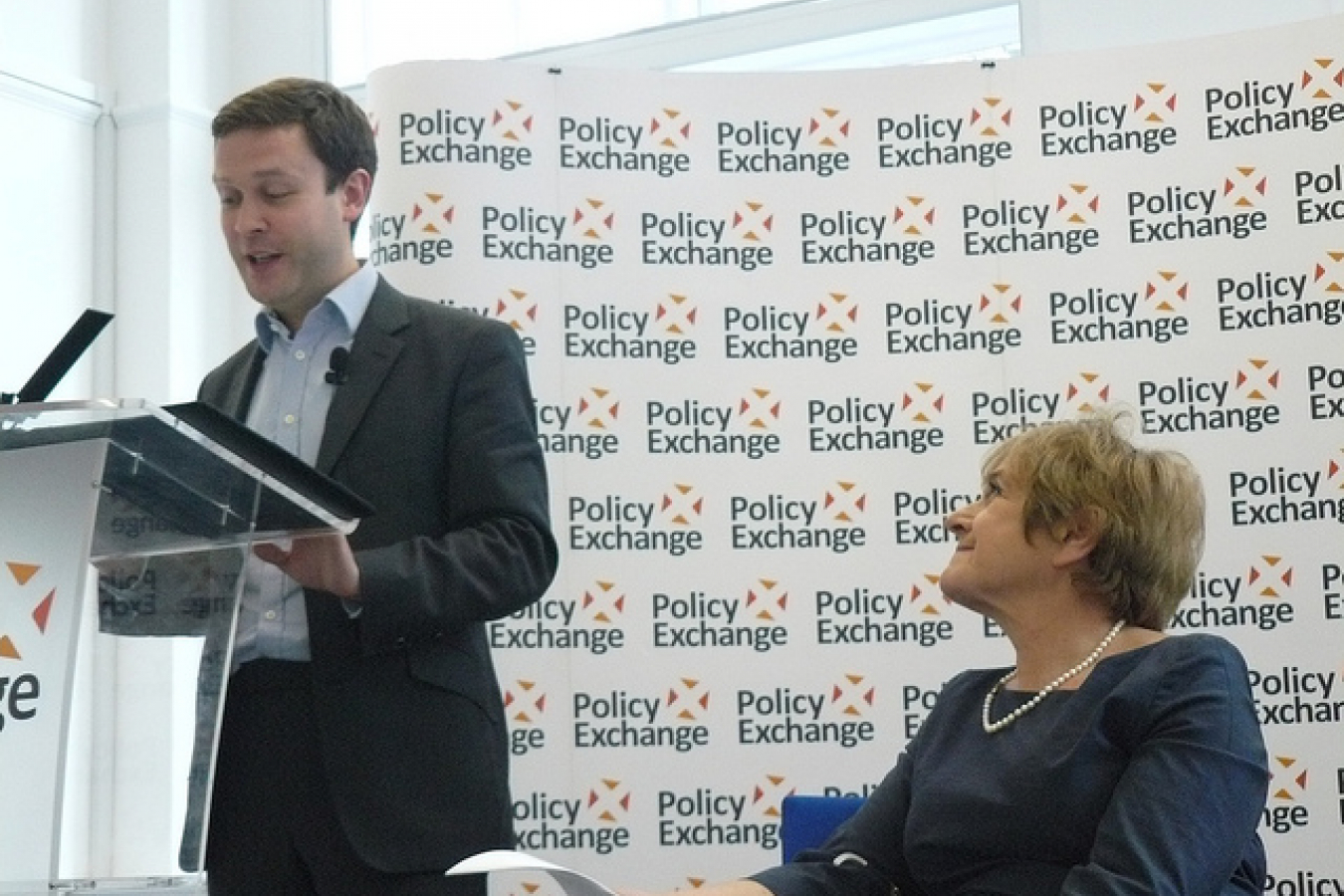Support migrant centric journalism today and donate

The UK parliament's Commons Public Accounts Committee published a report entitled 'Immigration: Points based System Student Route' today, 4th September 2012. The report is fiercely critical of the UK immigration authorities.
The report finds that UK immigration authorities were wrong to introduce the new Tier 4 student visa, which is part of the UK's points-based visa system, in 2009. Margaret Hodge, the Chair of the Committee, said at a Westminster press conference this morning that management failures by the UK border Agency had resulted in massive abuse of the system.
'The Agency implemented the new system before proper controls were in place,' she said. 'It removed the controls it relied on under the old system…before it had replaced them with new checks and controls.' 'The result of the Agency's poorly planned and ill-thought out course of action was chaos; an immediate high level of abuse of the new system and a surge in the number of student visas. In 2009, the number of migrants who abused the student route to work rather than study went up by as much as 40,000 to 50,000.'
The old system, used before 2009, she said, relied primarily on 'intentions testing and spot check interviews by entry clearance officers'. This system was scrapped in March 2009 and 'the Agency did not make their secure electronic system, which demonstrated that a student had been sponsored by a licenced sponsor, mandatory until February 2010'.
Mrs Hodge said that since its catastrophic error in 2009, 'the Agency has been playing catch-up, continually adjusting the rules and procedures in order to try to tackle abuse.' She continued 'The result has been to create a huge amount of bureaucracy for universities and an increasingly complex system for students to navigate. A bad situation has been made worse by poor customer support being provided by the Agency.'
Last week, on 29th August 2012, the UKBA removed the Highly Trusted Sponsor status from London Metropolitan University (LMU). The UKBA claimed that LMU had not put systems in place to ensure that its students;
• Had visas,
• Were able to speak English adequately
• Attended lectures.
The UKBA decision means that LMU can no longer teach students from outside the European Economic Area and 2,600 international students currently studying there will have to leave the UK within 60 days of receiving notification to do so, unless they can find other institutions to teach them.
Yesterday, 3rd September 2012, the chairman of LMU's board of governors, Clive Jones CBE, announced that it intends to take legal action against the UKBA to make it reverse its decision. Mr Jones released a statement on the university's website blaming the UKBA for LMU's difficulties. He said 'the university has been conducting checks on its international students…specifically in relation to English language and educational ability, that not only meet UKBA's published requirements but exceed those requirements in a number of key areas'. He said that the UKBA had failed to respond to LMU's questions about correct procedures despite repeated requests and said that 'UKBA's requirements have changed substantially at least 14 times in the last three years'.
Yesterday, 3rd September, the Westminster Parliament held a debate on the subject of London Metropolitan University. The debate was initiated by Labour MP Jeremy Corbyn, whose Islington North constituency is home to the main LMU site.
During the debate, Mr Corbyn asked Damian Green, the UK immigration minister, to allow international students already studying at LMU to finish their courses in the UK. He also asked to be told the number of students found to be in contravention of the rules.
Mr Green said he would not allow affected students to continue with their studies but said that the government was establishing a taskforce to help them find courses elsewhere. He said that a UKBA audit in August had found that the university's poor systems did not allow him to say exactly how many students were genuine but he said that, of a sample of 600 students checked in August 2012, there were found to be problems with 60%.
Keith Vaz, Labour MP for Leicester East and the chairman of the Westminster parliament's Home Affairs Select Committee, said that even if students can find another course, they would have to repeat a year of study, pay another set of fees and pay for another visa from UKBA. He said that, although the government had promised help for those affected, none had yet been given and the taskforce had not yet arrived.
Speaking this morning at Westminster, Mrs Hodge said that the Commons Public Accounts Committee had found that the UKBA had failed to take 'sufficient action to deal with migrants abusing the student route'. She said the UKBA 'should not be ignoring such large numbers of people living and working in the UK illegally.' However, she also said that students usually left within 5 years and it would be more informative to report net migration figures excluding students as well as including them in future.
If you would like to apply for a UK visa workpermit.com can help. workpermit.com is a specialist visa consultancy with nearly twenty-five years of experience dealing with visa applications. We can help with a wide range of visa applications to your country of choice. Please feel free to contact us for further details.
The report finds that UK immigration authorities were wrong to introduce the new Tier 4 student visa, which is part of the UK's points-based visa system, in 2009. Margaret Hodge, the Chair of the Committee, said at a Westminster press conference this morning that management failures by the UK border Agency had resulted in massive abuse of the system.
'The Agency implemented the new system before proper controls were in place,' she said. 'It removed the controls it relied on under the old system…before it had replaced them with new checks and controls.' 'The result of the Agency's poorly planned and ill-thought out course of action was chaos; an immediate high level of abuse of the new system and a surge in the number of student visas. In 2009, the number of migrants who abused the student route to work rather than study went up by as much as 40,000 to 50,000.'
The old system, used before 2009, she said, relied primarily on 'intentions testing and spot check interviews by entry clearance officers'. This system was scrapped in March 2009 and 'the Agency did not make their secure electronic system, which demonstrated that a student had been sponsored by a licenced sponsor, mandatory until February 2010'.
Mrs Hodge said that since its catastrophic error in 2009, 'the Agency has been playing catch-up, continually adjusting the rules and procedures in order to try to tackle abuse.' She continued 'The result has been to create a huge amount of bureaucracy for universities and an increasingly complex system for students to navigate. A bad situation has been made worse by poor customer support being provided by the Agency.'
Last week, on 29th August 2012, the UKBA removed the Highly Trusted Sponsor status from London Metropolitan University (LMU). The UKBA claimed that LMU had not put systems in place to ensure that its students;
• Had visas,
• Were able to speak English adequately
• Attended lectures.
The UKBA decision means that LMU can no longer teach students from outside the European Economic Area and 2,600 international students currently studying there will have to leave the UK within 60 days of receiving notification to do so, unless they can find other institutions to teach them.
Yesterday, 3rd September 2012, the chairman of LMU's board of governors, Clive Jones CBE, announced that it intends to take legal action against the UKBA to make it reverse its decision. Mr Jones released a statement on the university's website blaming the UKBA for LMU's difficulties. He said 'the university has been conducting checks on its international students…specifically in relation to English language and educational ability, that not only meet UKBA's published requirements but exceed those requirements in a number of key areas'. He said that the UKBA had failed to respond to LMU's questions about correct procedures despite repeated requests and said that 'UKBA's requirements have changed substantially at least 14 times in the last three years'.
Yesterday, 3rd September, the Westminster Parliament held a debate on the subject of London Metropolitan University. The debate was initiated by Labour MP Jeremy Corbyn, whose Islington North constituency is home to the main LMU site.
During the debate, Mr Corbyn asked Damian Green, the UK immigration minister, to allow international students already studying at LMU to finish their courses in the UK. He also asked to be told the number of students found to be in contravention of the rules.
Mr Green said he would not allow affected students to continue with their studies but said that the government was establishing a taskforce to help them find courses elsewhere. He said that a UKBA audit in August had found that the university's poor systems did not allow him to say exactly how many students were genuine but he said that, of a sample of 600 students checked in August 2012, there were found to be problems with 60%.
Keith Vaz, Labour MP for Leicester East and the chairman of the Westminster parliament's Home Affairs Select Committee, said that even if students can find another course, they would have to repeat a year of study, pay another set of fees and pay for another visa from UKBA. He said that, although the government had promised help for those affected, none had yet been given and the taskforce had not yet arrived.
Speaking this morning at Westminster, Mrs Hodge said that the Commons Public Accounts Committee had found that the UKBA had failed to take 'sufficient action to deal with migrants abusing the student route'. She said the UKBA 'should not be ignoring such large numbers of people living and working in the UK illegally.' However, she also said that students usually left within 5 years and it would be more informative to report net migration figures excluding students as well as including them in future.
If you would like to apply for a UK visa workpermit.com can help. workpermit.com is a specialist visa consultancy with nearly twenty-five years of experience dealing with visa applications. We can help with a wide range of visa applications to your country of choice. Please feel free to contact us for further details.





















